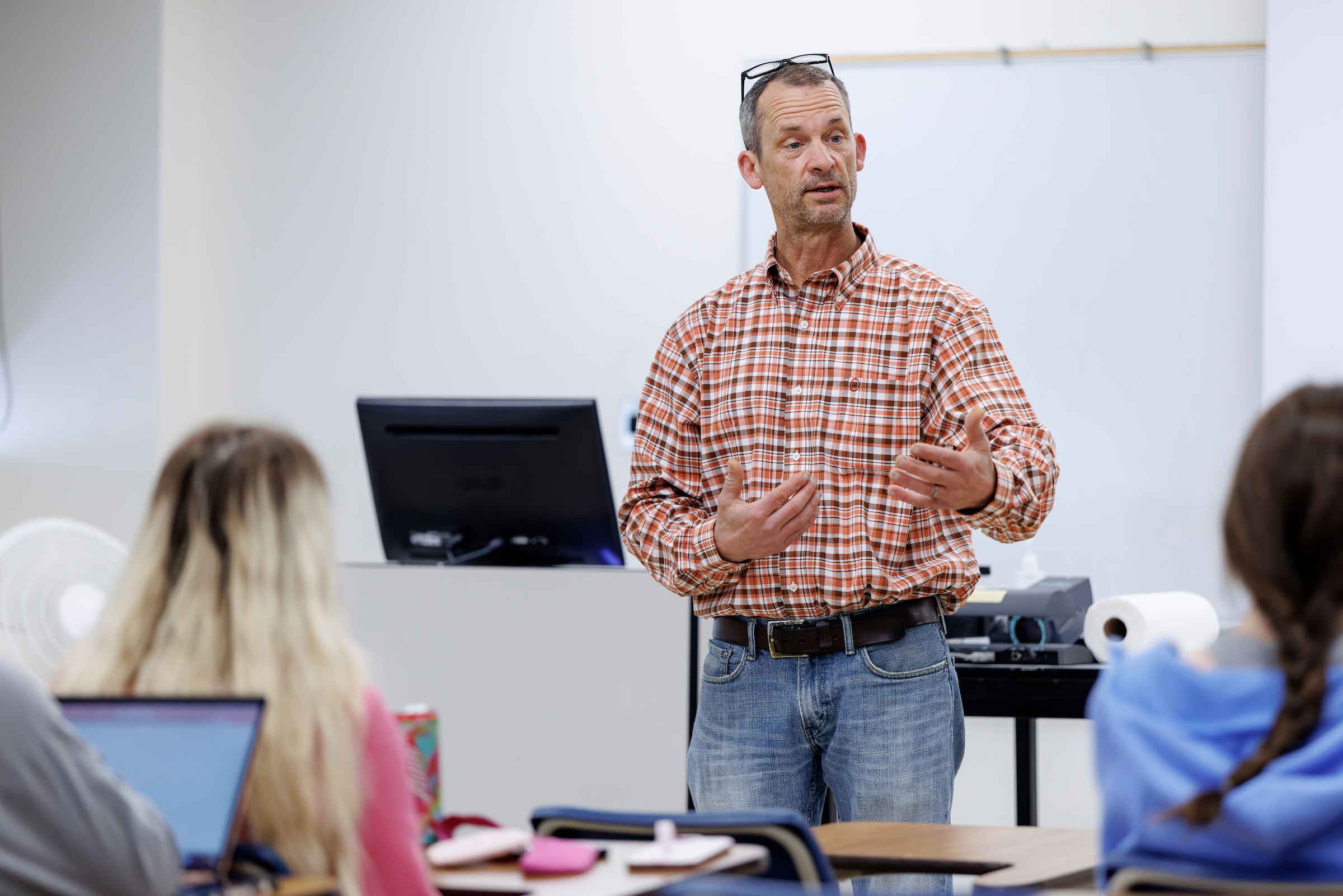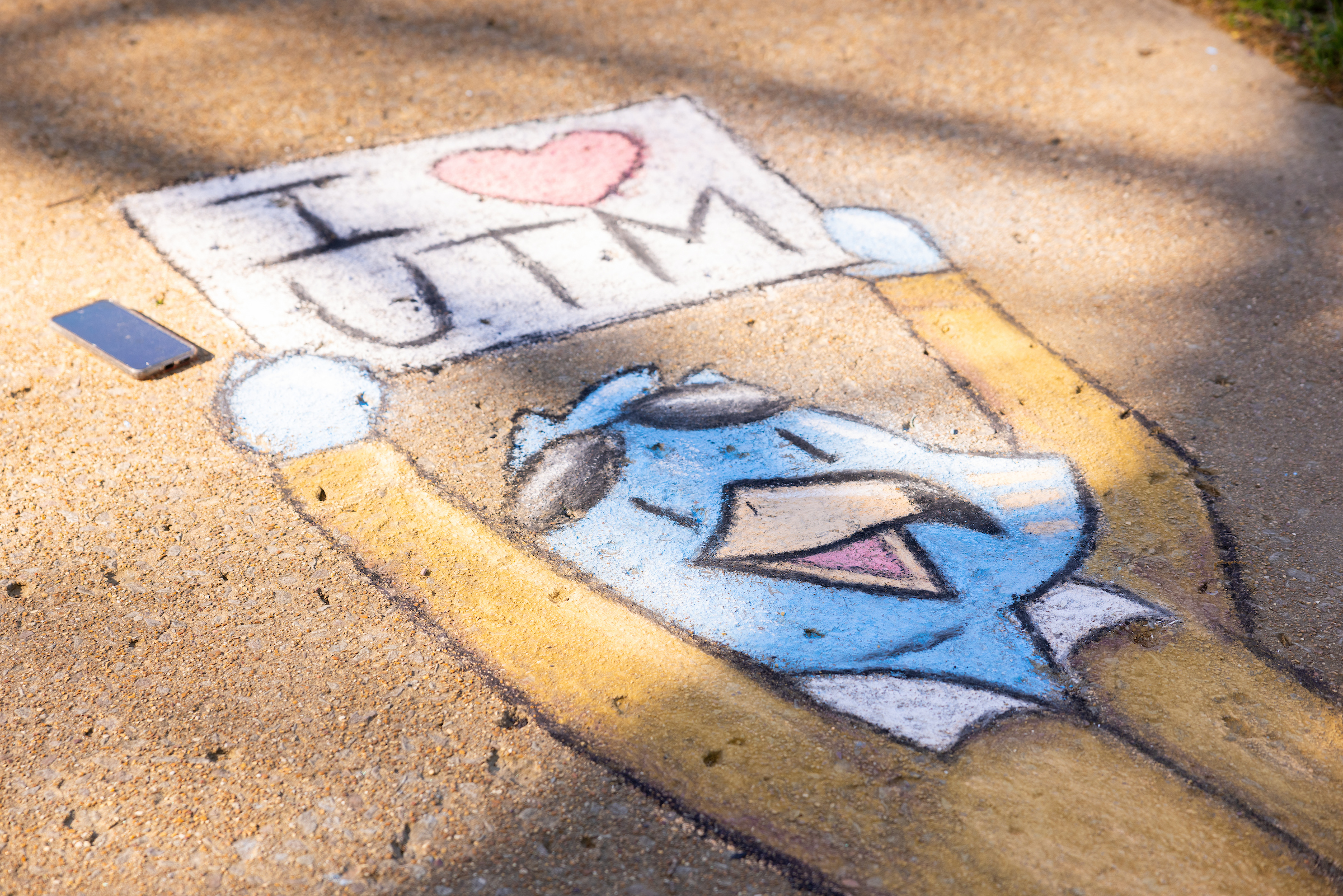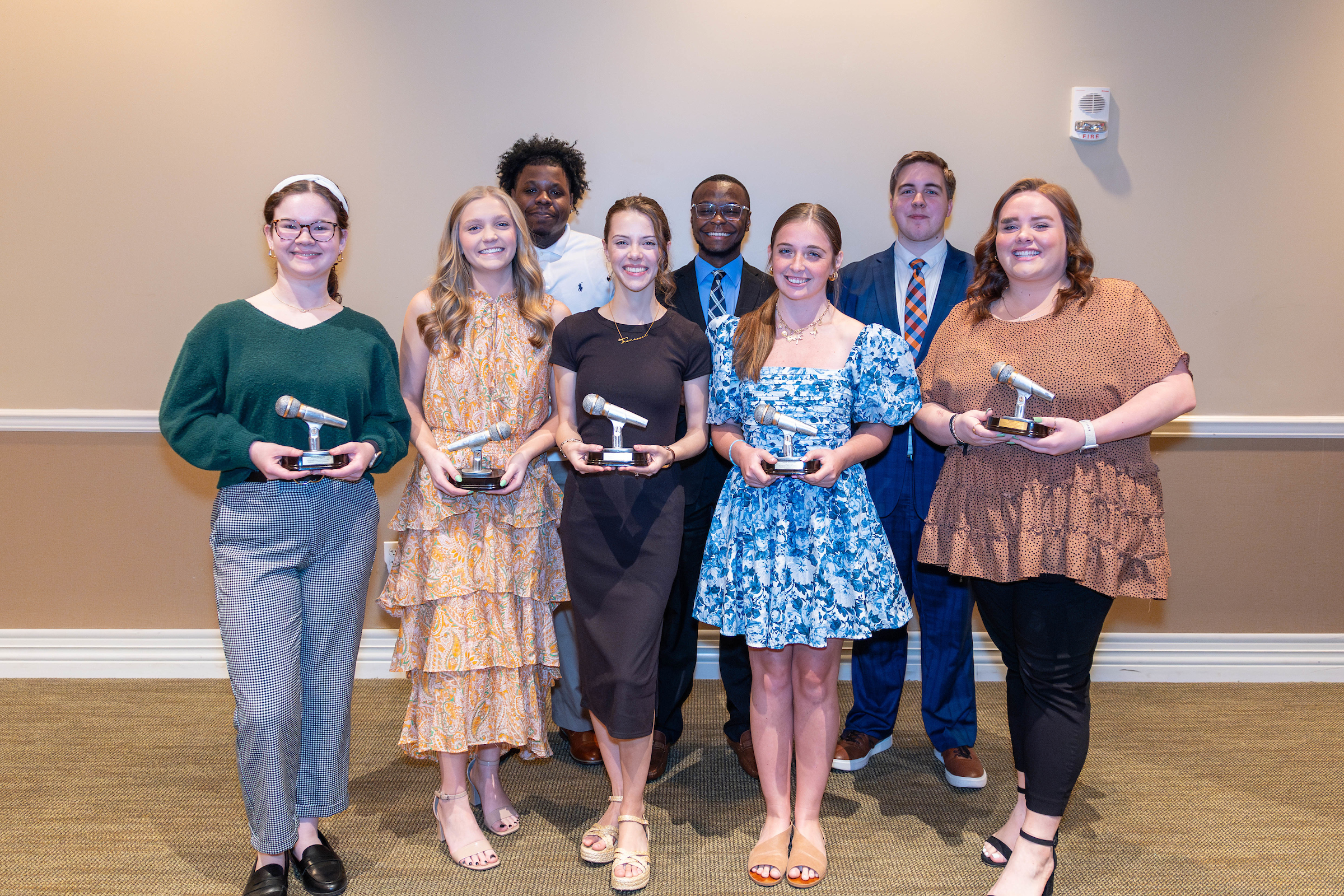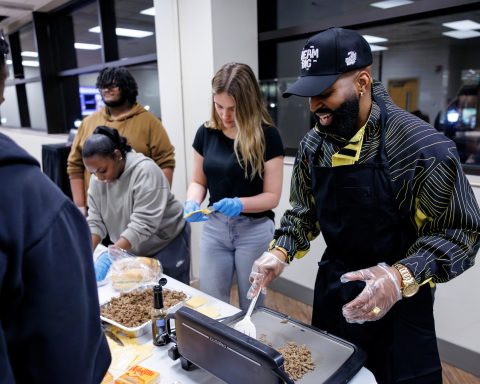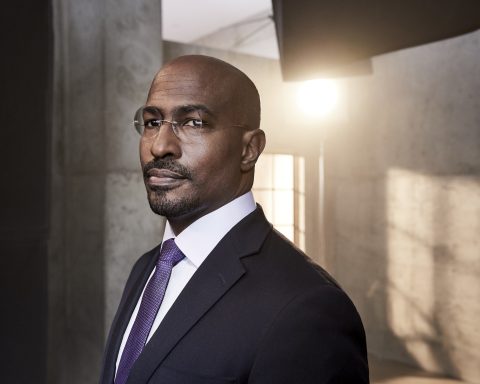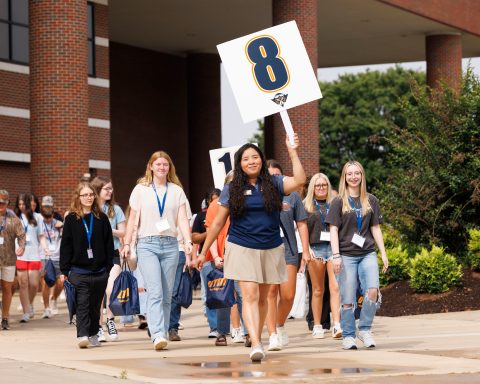Attending an event to discuss death is not on most people’s to-do list, but Dr. Keith Dooley thinks that maybe it should be. The University of Tennessee at Martin faculty member guides his students to explore end-of-life considerations through an event called Death Café, where topics related to death and dying are openly discussed and explored with outside participants.
The third-ever such event at UT Martin is set for 6-7:30 p.m., Tuesday, April 15, in the Nunnelly Welcome Center located just inside the Boling University Center. The public is invited, and parking will be available in the lots bordering Wayne Fisher Drive.
Death Café is a class project for Dooley’s students enrolled in his “Death, Dying, and Bereavement” course offered periodically as part of the gerontology curriculum. The licensed gerontologist earned two master’s degrees, including one in counseling, and holds a doctorate in psychology. He is an associate professor and chair for the university’s Department of Family and Consumer Sciences.
“Gerontology is a multidisciplinary field, meaning that contribution comes from across the academic spectrum. …” he said. “Our program is built on gerontology classes in our department, as well as courses in health and human performance, social work, sociology and others. I feel like a bachelor’s-level education in gerontology prepares our students to work directly or indirectly with the aging population.”
UT Martin students can earn either a bachelor’s degree or a minor in family and consumer sciences with a gerontology concentration. Employment opportunities are plentiful for graduates prepared to work with an aging U.S. population. Dooley reminds students planning to enter a health-related career that, “chances are that 90% of your patients are going to be over the age of 65.”
The government is another major employer for those possessing gerontology-related skills.
“One of the biggest employers of aging-related services is the U.S. government through the Administration on Aging, because they distribute funds to all communities in the country for area agencies on aging and disability, which fund the senior centers and other ancillary services that are part of the Older Americans Act,” he said.
The Older Americans Act was passed in 1965 and mandates a variety of services for the older population, which creates related employment opportunities. So, whether a person chooses government, health care or private business, career options are available for those who want to work with or advocate for older adults.
Dooley introduced the death-and-dying course into the undergraduate and graduate curriculum after arriving at UT Martin in 2015. He describes the course as “actually a fun course to teach” and where a main theme is the choice and freedom people have to manage their own end-of-life decisions.
“We talk a lot about our own individual perspectives on death and where they come from,” he said. “I engage my students to really try to envision what they would consider to be a – for lack of a better way to put it, and this is the term I use in class: ‘a good death.’ What is a good death for them?
“And then I explain the systems and tools that we have in our society to give people the best chance at that – things like advanced directives, end-of-life planning, and guides for how to talk to people about end-of-life wishes, how to have that conversation.
“While a large majority of people think it is a good idea to talk about these things, it’s not an easy conversation to have, so only a small number of us ever actually go through with it.”
Class conversations also extend to topics that explore death statistics, funeral rituals, grief and even what might lie beyond death.
“We talk about afterlife, mythology and how our spirituality impacts fear and anxiety about death,” he said. “We look at different cultures and different religions and how their views of death are similar and different.”
Death Café is an extension of the curriculum that allows his students to share their knowledge and involve friends and loved ones in important conversations about this part of life. Dooley said the Death Café concept originated in England and was first held in the U.S. about a decade ago. His students plan, host and facilitate the conversation for participants, who come to the event from many backgrounds.
“Students have brought their parents, grandparents and siblings, boyfriends and girlfriends, spouses and children, roommates, other professors,” he said. “We’ve even had students walk in randomly, and everyone is welcome. It’s been a really interesting mix of people of different ages and different walks of life, and I think that’s one of the things that makes it so good.”
Much like a good coach, Dooley has prepared his students for the event, so he will observe and assist only as needed. The setting will be relaxed and welcoming and provide the backdrop for participants to speak and discuss freely.
“It will be everyone just talking amongst each other in a very casual setting,” he said. “We have cake and coffee, and one of the rules of Death Café is you must have cake. That’s a requirement.”
Dooley is pleased with how the previous two Death Cafés were received and expects the April 15 event to be no different. Among the hoped-for takeaways for his class and participants is recognizing the importance of writing down specific end-of-life wishes and instructions so that loved ones know about them. He also expects the format to generate meaningful conversations.
“I’d hope that the people would leave the event saying, ‘That was a really interesting thing that I just did, and I can’t believe that I was brave and comfortable enough to talk about some of those things,’” he said. “Again, no agenda, no specific goals except to just create an inviting atmosphere for people to talk about things they don’t normally talk about.”
To learn more about Death Café or the UT Martin Department of Family and Consumer Sciences, email Dooley at wdooley@utm.edu.
PHOTO: Dr. Keith Dooley, associate professor of child and family studies and gerontology and chair of the Department of Family and Consumer Sciences, is shown teaching a class in the “Death, Dying and Bereavement” course earlier this semester. Death and dying will be openly discussed and explored at UT Martin during Death Café, which is set for 6-7:30 p.m., Tuesday, April 15, in the Nunnelly Welcome Center located inside the Boling University Center. The event is open to the public and will be hosted by students enrolled in the “Death, Dying and Bereavement” course taught in the gerontology curriculum.

